First things first: Washington Capitals forward Evgeny Kuznetsov didn’t technically “dope,” from the NHL’s perspective.
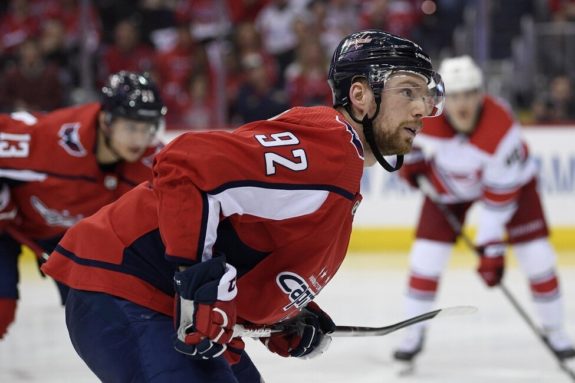
Sure, Kuznetsov has been been suspended four years by the International Ice Hockey Federation after testing positive for cocaine. That could be all he faces in terms of suspensions, though. After all, it officially wasn’t an NHL test. Meanwhile, even if the Capitals theoretically have the power to dole out supplementary discipline of their own, they shouldn’t.
Kuznetsov Learns Hard Lesson
It wouldn’t be solely due to the fact Kuznetsov is a key member of the team’s offense, scoring 72 points this past season. Supplementary discipline would actually send the wrong message. Here’s why:
After the news of Kuznetsov’s positive test and suspension broke, NHL deputy commissioner Bill Daly released a statement. He confirmed cocaine is not seen as a performance-enhancing drug by the league and said “Kuznetsov has voluntarily sought help through the education and counseling program provided for in the… Collective Bargaining Agreement.”
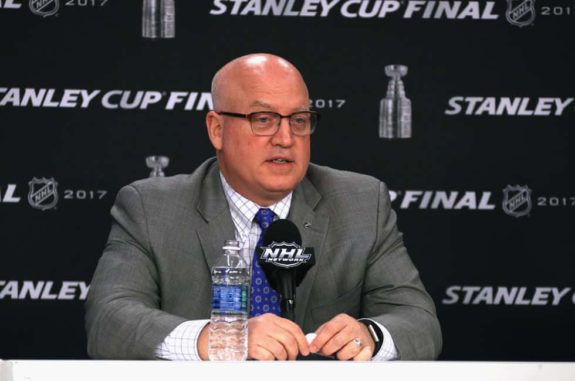
Cocaine is hardly the Propecia over which Jose Theodore got banned internationally. Still, the league’s stance is that Kuznetsov is doing what he can to ensure this doesn’t become an issue. Of note, the NHL can place players in the NHL/ NHLPA substance abuse and behavioral health program. For example, Nashville Predators forward Austin Watson got suspended for alcohol abuse, just this past season. It may be a bit extreme to go that far with regard to Kuznetsov, though.
Kuznetsov vs. Kassian
As another example, the Montreal Canadiens acquired Zack Kassian in the summer a few seasons ago. He never played a game for the Habs after getting into a car accident in the lead-up to the 2015-16 season. Once his ensuing suspension was over, he got traded to the Edmonton Oilers.
Yes, Kassian, as a bottom-six forward, was relatively expendable. In other words, he was arguably made an example of and Kuznetsov isn’t exactly cut from the same cloth. However, Watson actually returned to the Predators for their playoff run and remains a member of the team to this day. So, just because it was easy to cut ties with Kassian, it wasn’t necessarily the best avenue to take.
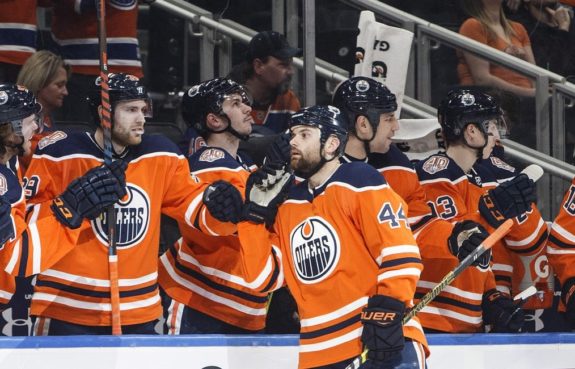
The exact circumstances surrounding the incident and Kassian’s suspension are unclear. However, one can argue Bergevin’s knee-jerk reaction was an ill-advised indictment of the league’s program. Kassian effectively underwent rehab, which is short for rehabilitation. He arguably didn’t get a chance to prove that it worked before the Habs decided it wasn’t a good fit. Four seasons later, he’s one of the Oilers’ best wingers. Granted, that’s not saying much, but the point is clear: Sometimes second chances do work.
That’s probably the best course of action for the Capitals to take. Look at it this way: Players make mistakes both on the ice and off it. Kuznetsov is voluntarily seeking counseling to ensure he doesn’t screw up to the same degree again. As long as he keeps himself clean from here on out, there’s no reason to escalate the situation.
Kuznetsov Made Two Mistakes
Maybe doing nothing here is the easiest thing to do, in sharp contrast to how the Habs handled Kassian. However, from a public-relations perspective, it really isn’t. And it looks really bad. After all, this is not exactly the start of the Kuznetsov saga. Remember, a video of him sitting next to lines of white powder surfaced right after the IIHF World Championship.
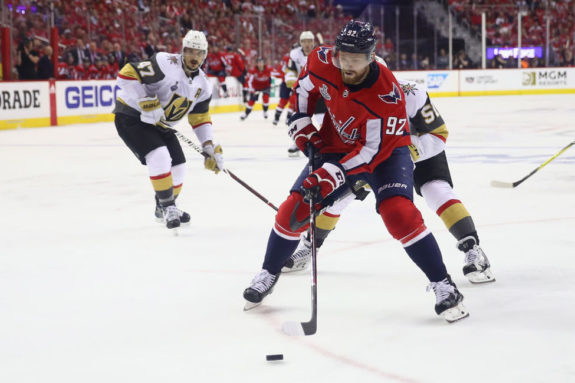
Even with the positive drug test, it’s impossible to determine if the powder was cocaine. Where the issue arises is how Kuznetsov denied ever using drugs at the time. The positive test was from a day before the video surfaced. So, the word “dope” can have several meanings here, with Kuznetsov’s denial being especially brazen under the circumstances. Of note, Kuznetsov didn’t deny using cocaine in his written statement after the positive test.
The embarrassment the Capitals face isn’t just due to Kuznetsov’s alleged indiscretion. It’s also due to how they publicly accepted Kuznetsov’s explanation at the time and moved past it. Now, they can’t, nor should they. However, they must be careful about how they approach the situation. It’s a very delicate one.
Kuznetsov Far from off the Hook
Aside from a modified no-trade clause that Kuznetsov possesses starting this season, he’s hardly unmovable. He’s an in-his-prime top-line talent. If the Capitals decided to trade him, they probably could and get a decent return too, but giving up on a player even after they leave a stain on the team’s logo can be just as unbecoming.
As alluded to earlier, the league does reserve the right to hand down discipline here. According to Daly, a decision on the matter will be made prior to training camp, once Kuznetsov meets with commissioner Gary Bettman in person. Much like Watson and Kassian were, he can potentially be suspended.
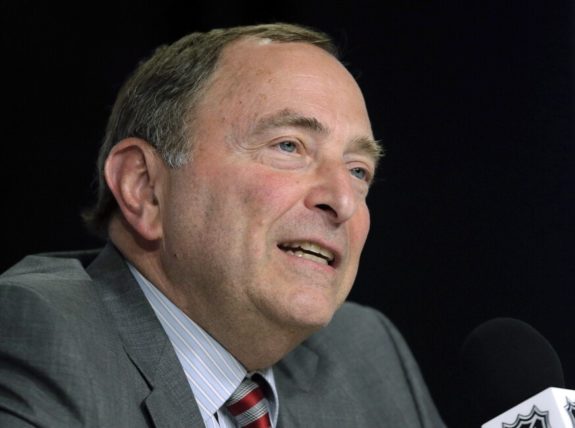
Kuznetsov likely won’t be, though. That doesn’t mean he’s off the hook. He’s been suspended from international competition and he’s “agreed to regular testing protocol” by the NHL. So, he’ll be watched like a hawk from here on out, but no one should hope Kuznetsov stumbles and tests positive again.
For the record, his Capitals teammates are saying they have Kuznetsov’s back. The Capitals themselves should echo the sentiment. Kuznetsov may very well not have a recurring problem, but if he does it becomes everyone’s, instead.
The Capitals shouldn’t sever ties with Kuznetsov. That’s almost painfully obvious, but what isn’t is that they shouldn’t want to either. There may be broken trust here, with the lion’s share of responsibility falling on Kuznetsov to repair it, but being receptive to fixing the relationship is hard too. There’s a lot of work to do.